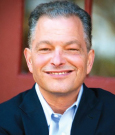Integrative oncology had a long road to acceptance by the mainstream medical community; the field is now widely accepted for its healthful benefits, especially in assuaging the more troublesome side effects of cancer treatments. Many well-known oncologists have adapted integrative oncology into their clinical practice, such as Mitchell L. Gaynor, MD, a talented and persuasive advocate for the field. Dr. Gaynor died on September 15. The cause of death was reported as suicide.
Dr. Gaynor was born in rural Hale Center, Texas, on June 5, 1956, the son of Dr. J. Irvin Gaynor, a dentist, and the former Elaine Shure. The family relocated to the suburban town of Plainview, New York, when Dr. Gaynor was in elementary school. He graduated from Plainview High School in 1974.
After receiving his medical degree from the University of Texas Southwestern Medical School in Dallas, he was a clinical fellow in hematology-oncology at the New York Hospital–Cornell Medical Center. He has held the position of Director of Medical Oncology at the Strang Cancer Prevention Center and also Medical Director of Oncology at the Weill Cornell Medical College Center for Complementary and Integrative Medicine. Dr. Gaynor was also a member of ASCO.
Early Interest in Integrative Oncology
In 1987, when Dr. Gaynor was a postdoctoral fellow at Rockefeller University in New York, he became interested in the emerging field of integrative oncology. At that time, research at the university was being conducted on nutrient-gene interactions and the immune system.
However, an even earlier experience might also have had a latent formative effect on his attraction to alternative medicine. When he was 9 years old, his mother died of breast cancer, and he would often remark on how impressed he was that a person with a terminal disease could have equanimity and inner peace in the presence of significant physical suffering and illness.
In 1991, Dr. Gaynor had another pivotal career episode. While at New York Hospital, he was caring for a refugee Tibetan monk named Odsal who had a very rare cardiac condition. Dr. Gaynor’s eyebrow-raising diagnosis was that because the monk was separated from his spiritual homeland, he was suffering from a broken heart. A practitioner of meditation, he schooled the monk in his own style of meditation, and they quickly became friends. The monk reciprocated by bringing a traditional Tibetan metal singing bowl to Dr. Gaynor’s Manhattan apartment.
He was known to move outside of the mainstream comfort zone. Most of the nutritional supplements and alternative treatments that Dr. Gaynor recommended were aimed at fortifying a patient’s immune system and targeted what he determined were the root causes of disease. During a 2013 interview, he said, “I was amazed at the fact that we really ‘are what we eat,’ and that with the best medical training in the world, nobody in medical school had ever taught me this.”
The Sound of Healing
A published author, Dr. Gaynor, recalled his unlikely friendship with Odsal in his book, The Healing Power of Sound. He wrote,
We removed our shoes and settled ourselves cross-legged on the living room floor. Odsal took out a small wooden baton and moved it lightly around the rim of the bowl, in much the same way you might trace the lip of a wineglass with your finger. I could feel the vibration physically resonating through my body, touching my core in such a way that I felt harmony in the universe.… I immediately intuited that playing the bowls would change my life, and the lives of many of my patients.
Something of a Renaissance man, Dr. Gaynor joined up with the son of one of his patients to produce a record titled, “Change Your Mind.” After it was featured on The Dr. Oz Show, the record topped Billboard Magazine’s new age charts. The duo recorded two other successful records.
Dr. Gaynor was the author of the recent book, The Gene Therapy Plan, which combined nutritional recipes and medical research to help fight cancer. At the time of his death, Dr. Gaynor was promoting the book, which was said to provide a revolutionary approach to reversing gene damage associated with aging, cancer, obesity, and diabetes and to prevent future gene deterioration with specific alternative health programs. He was also the author of five other books, many of them focused on the environment’s effect on an individual’s health and geared for a general readership.
Dr. Gaynor served on advisory boards for Healthy Living Magazine and the Sass Foundation for Medical Research and was a member of the editorial board of the journal Integrative Cancer Therapies.
Dr. Gaynor’s marriage ended in divorce; he is survived by two sons, Eric and David, and a brother, Dr. Richard Gaynor. ■


